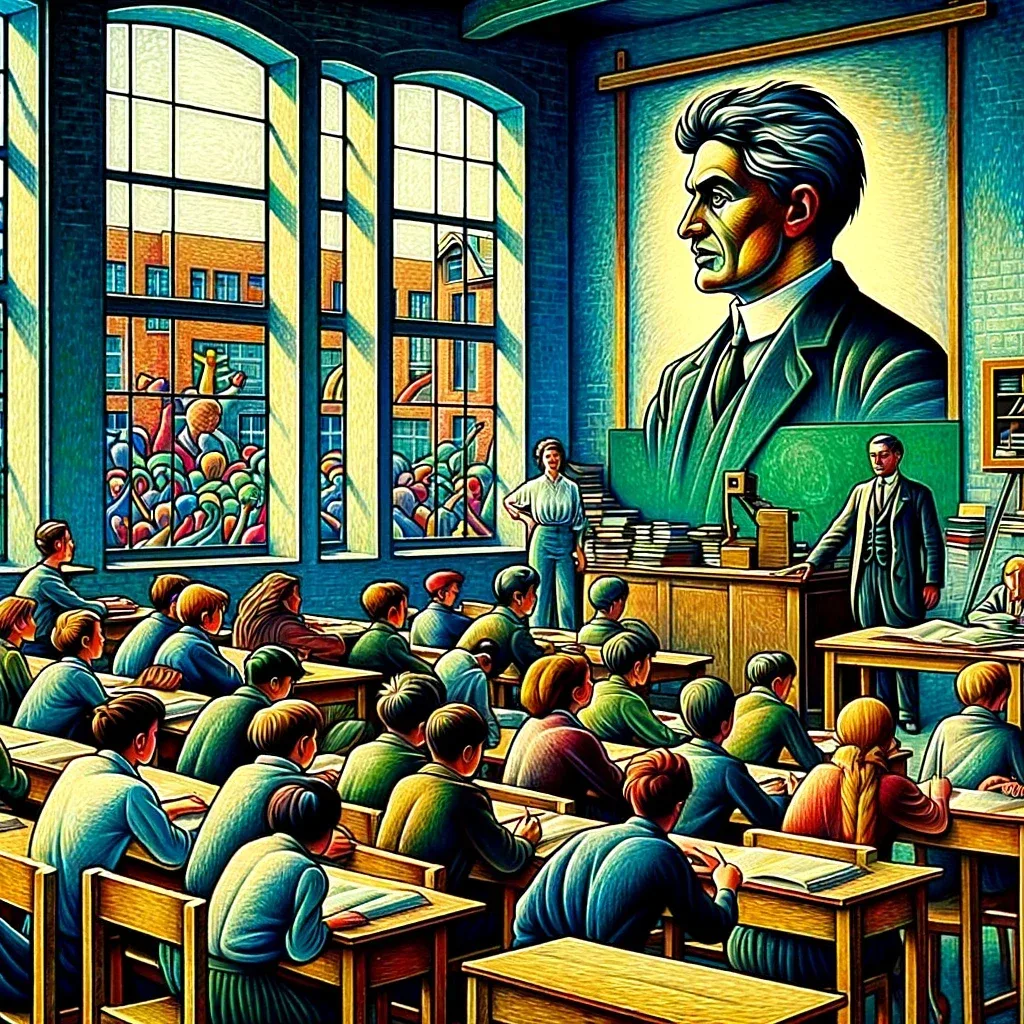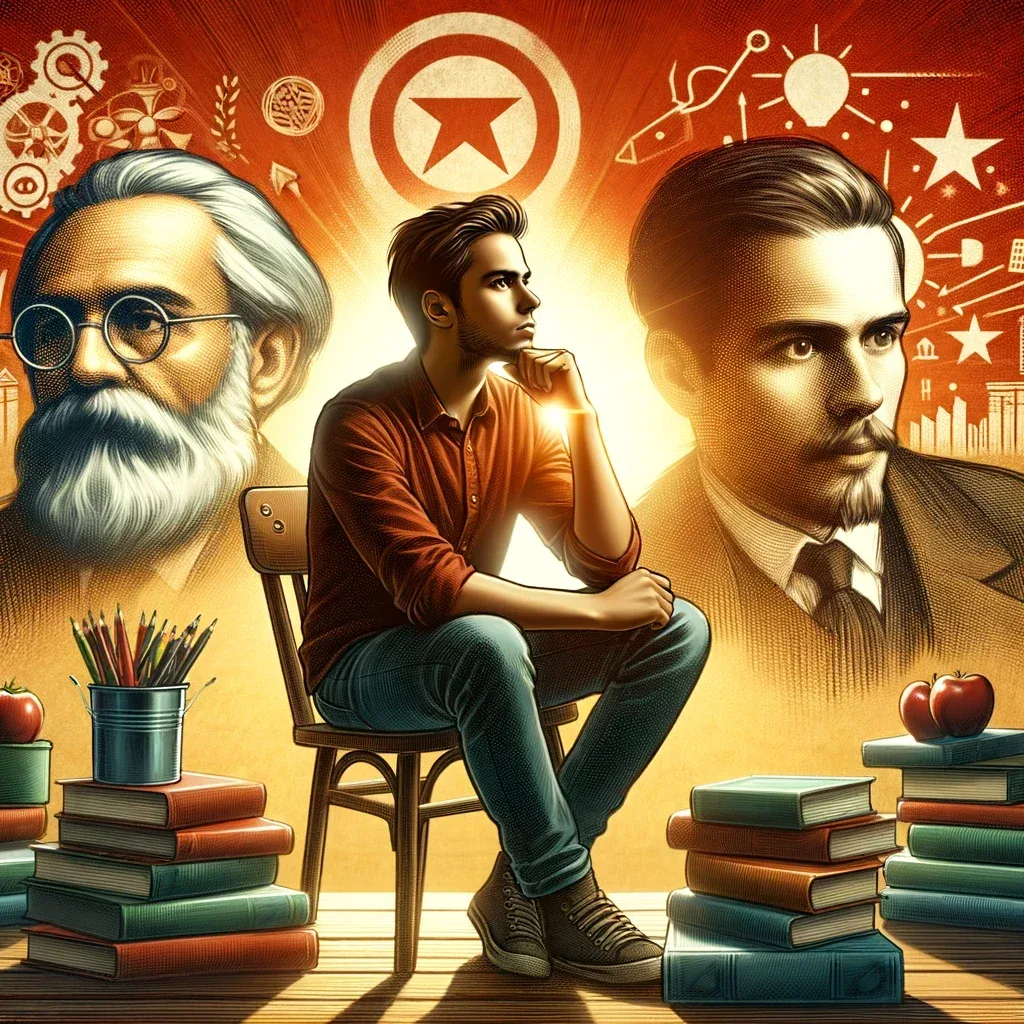Antonio Gramsci, one of the most influential Marxist theorists of the XNUMXth century, offered a unique and profound insight into philosophical activity. This article aims to explore how Gramsci conceived philosophy, emphasizing its relevance in the social, political and cultural context. Gramsci saw philosophy not only as a theoretical activity but also as a practical force in the struggle for social transformation. Throughout this text, we will investigate the main aspects of his philosophical conception, including his approach to hegemony, intellectuality and the relationship between theory and practice.

Gramsci's contextualization

Life and work
Antonio Gramsci (1891-1937) was an Italian philosopher, writer and politician. His life was marked by active involvement in politics, being co-founder of the Italian Communist Party. His works were written mainly during his imprisonment by the fascist regime, where he developed fundamental concepts such as hegemony, civil society and organic intellectuals.
Influences and historical context
Gramsci was deeply influenced by Marxism, but criticized certain orthodox interpretations of Marxist theory. He lived during a turbulent period in Italian history, which significantly shaped his ideas about philosophy as a tool for understanding and transforming society.
Philosophy according to Gramsci

Cultural Hegemony
Gramsci introduced the concept of cultural hegemony to describe how ruling classes maintain power not only through force but also through control of cultural ideas and institutions. For him, philosophical activity was crucial in analyzing and contesting this hegemony.
The Role of Intellectuals
Gramsci saw intellectuals as key players in maintaining or destabilizing cultural hegemony. He distinguished between traditional intellectuals, who reinforce existing power structures, and organic intellectuals, who emerge from the people and work to transform social consciousness.

Theory and practice
For Gramsci, philosophy should not be divorced from practice. He advocated a dialectical approach, in which theory and practice are interconnected, and philosophy is a means of understanding and acting on the real world.
Gramsci and Education

Education as an Instrument of Hegemony
Gramsci considered education a means by which the dominant classes perpetuate their hegemony, instilling their ideologies in society. On the other hand, he also saw education as a means of resistance and social transformation.
Critical Education
Gramsci's approach to education emphasized the importance of critical thinking and questioning social and ideological norms, preparing individuals to actively participate in transforming society.
Current Impact and Relevance

Influence on Western Marxism
Gramsci's ideas on philosophy and hegemony have had a significant influence on Western Marxism, reshaping the understanding of how the working class can gain and maintain political power.

Contemporary Applications
Gramsci's concepts of cultural hegemony and the role of intellectuals continue to be applied in contemporary analyzes of culture, politics and society, highlighting their continued relevance.
Conclusion
Antonio Gramsci offered a revolutionary perspective on philosophical activity, seeing it as intrinsically linked to social and political transformation. His vision of philosophy as a tool for understanding and contesting cultural hegemony and promoting social change continues to influence thinkers and activists. Gramsci teaches us that philosophy is not a purely academic exercise, but a vital means of understanding and shaping the world in which we live.
Frequently Asked Questions About Antonio Gramsci's Philosophy
Discover the answers to the most common questions about Antonio Gramsci's conception of philosophical activity, offering an in-depth look at his revolutionary concepts and ideas.

1. Who was Antonio Gramsci?
2. How does Gramsci conceive of philosophical activity?
3. What is cultural hegemony according to Gramsci?
4. What is the difference between traditional and organic intellectuals in Gramsci?
5. How is education seen by Gramsci?
6. What is the relevance of Gramsci's ideas in Western Marxism?
7. How are Gramsci's theories applied today?
8. What was Gramsci's view of the relationship between theory and practice?
9. Was Gramsci critical of orthodox Marxism?
10. How can Gramsci's ideas be applied to everyday life?






